Fake ID Card USA
How to Identify and Deal with the Phenomenon of Fake ID Cards in the United States
In today's society, identity documents are an indispensable part of our lives. Whether in daily life or in certain specific occasions, ID cards play a vital role. However, with the development of technology, the phenomenon of fake ID cards has become common, especially in the United States, where fake ID cards have become a social problem. This article will discuss the phenomenon of fake ID cards and their impact in detail, and provide some suggestions for identification and response.
1. Background of fake ID cards
There are many reasons for fake ID cards. In the United States, some young people use fake ID cards to enter bars or other age-restricted places. In addition, some illegal immigrants and criminals may also forge ID cards to obtain jobs or conduct other illegal activities.
The technical means of counterfeiting ID cards are constantly improving, and modern fake ID cards look almost indistinguishable from real documents. This makes it difficult for ordinary people to identify the authenticity in a short period of time, increasing the complexity of social security.
2. Tips for identifying fake ID cards
1. Check physical characteristics
The vast majority of American ID cards have a series of unique physical characteristics. For example, the material of the ID card is usually plastic and feels smooth. Check the edges of the ID card to see if there are any blurred cutting lines. If the ID card shows brushed or jagged edges, it is likely a counterfeit.
2. Observe the optics
Many states use sophisticated optical imaging techniques to embed security icons or watermarks on ID cards. Hold the ID card up to a light to see if hidden patterns appear. If these features are not visible under light, the ID card may be counterfeit.
3. Use a UV light
Some US ID cards display different colors and patterns under UV light. Shine the ID card through a UV light to see if the hidden logo and pattern can be seen. If there is no change, the ID card is most likely counterfeit.
4. Check the barcode or QR code
Most ID cards have a barcode or QR code on the back that stores the holder's personal information. Use the scan function of your phone or a professional scanner to check whether the barcode or QR code can be recognized normally. If the scan results in invalid information, the ID card is counterfeit.
5. Verify personal information
Check whether the personal information on the ID card is exactly the same as the information the holder says. The key is to verify information such as name, date of birth, and address. If a mismatch is found, it is most likely that a counterfeit document is being used.
3. Impact of forged ID cards
Forged ID cards are not only harmful to individuals, but also have potential negative impacts on society.
1. Legal consequences
In the United States, forging ID cards is illegal and will face serious legal consequences if discovered. Individuals involved in forged ID cards may be fined and in some cases even face imprisonment.
2. Damaged credit
Once arrested by legal authorities, an individual's credit rating will be hit hard. This will deal a heavy blow to future credit loans, rentals and employment opportunities.
3. Social security risks
Forged ID cards make it easier for criminals to hide in society. This may lead to an increase in a series of criminal activities, such as theft and fraud, posing a threat to social security.
4. How to legally obtain an ID card
For many young people, facing the pressure of entering a bar or buying alcohol, they may think of forging an ID card to cope with it. In fact, the way to legally obtain an ID card is not only simple but also safe.
1. Apply for a learner's license
Many states allow minors to apply for a learner's license as a form of identification. After obtaining a learner's license, young people can legally enter and exit places that require an ID card.
2. Ask for help from parents or guardians
Young people can ask their parents or guardians for help to apply for relevant identification documents. Many states and regions have specific procedures to help minors obtain identification documents for daily life.
3. Visit local government agencies
Each state has a government agency responsible for the application and management of ID cards. Young people can visit the official websites of these agencies to learn about the detailed application procedures and required materials to ensure that they can obtain identification documents through legal channels.
V. Conclusion
The phenomenon of counterfeit ID cards has caused many impacts on society. Identifying and responding to counterfeit ID cards is not only everyone's responsibility, but also an important measure to protect the safety of ourselves and others. By learning effective identification skills and following legal procedures to obtain ID cards, we can reduce the risks brought by counterfeit ID cards and protect the safety of ourselves and society.
In this era of highly developed information technology, being vigilant and enhancing self-protection awareness are qualities that everyone should possess. I hope that everyone can strengthen their understanding of identity documents in daily life, not only to identify the authenticity, but also to use them legally to protect their own legitimate rights and interests.
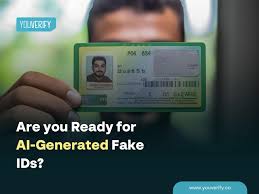 State ID Card
State ID Card
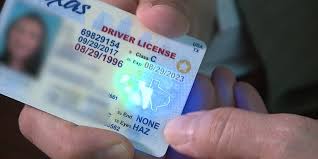 Buy Fake ID Card
Buy Fake ID Card
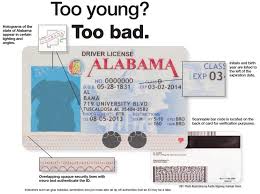 Fake Driving License
Fake Driving License
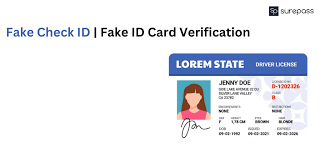 Fake USA Driving License
Fake USA Driving License
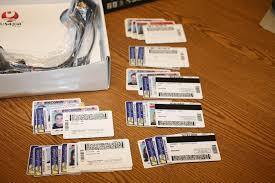 High Quality Fake License
High Quality Fake License
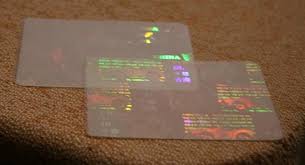 Buy Fake ID Card Easily
Buy Fake ID Card Easily
 How to Make a Fake ID Card
How to Make a Fake ID Card
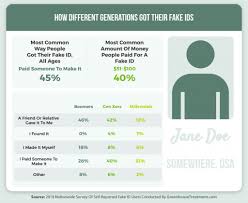 How to Get a Fake ID Card for
How to Get a Fake ID Card for
